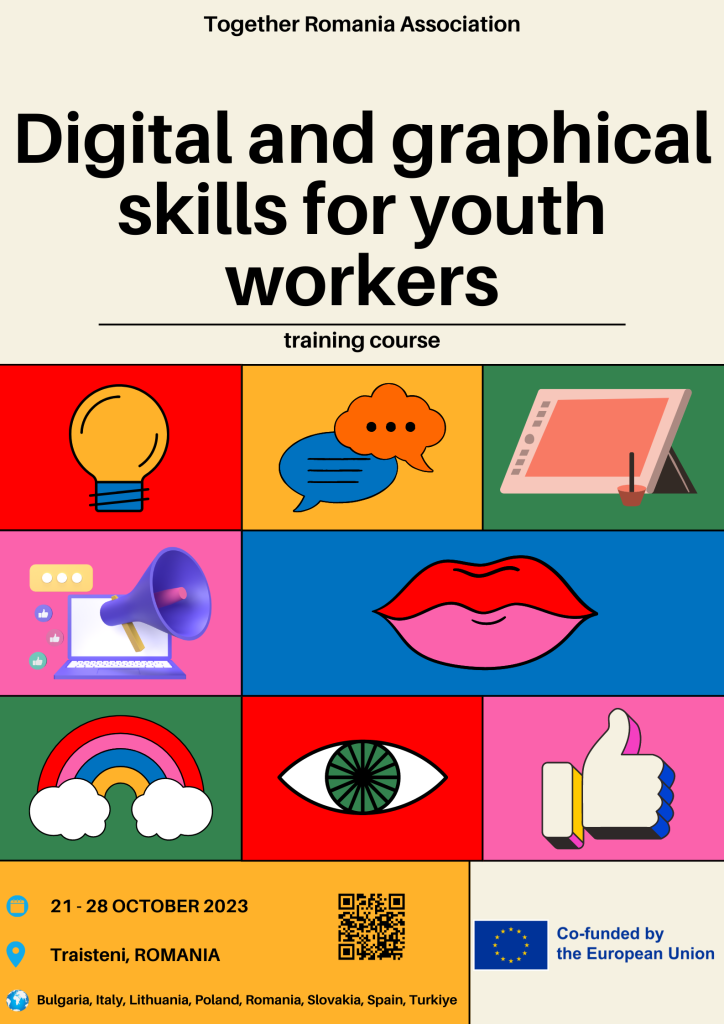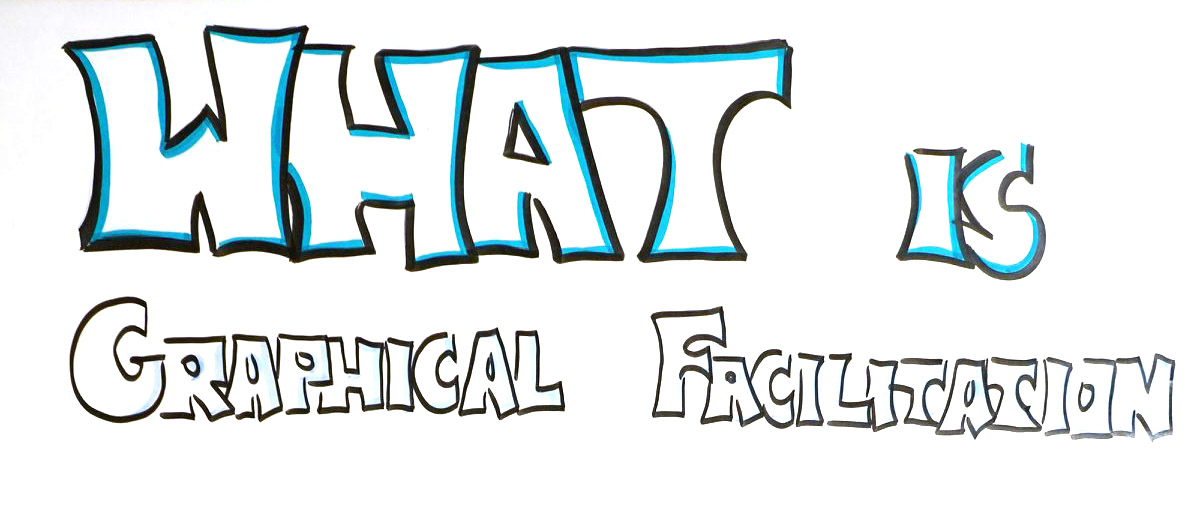Digital and graphical skills for youth workers
Training course for youth workers.
21st – 28th of October 2023
village of Traisteni, Valea Doftanei (Romania)
Together with our partners, we believe that in our daily context, digital and graphic facilitation constitutes great learning support in youth work. It is a way to answer the needs of our target audience who bases the learning and the information acquisition process on visual input. We are also used to being stimulated by visual input every day, our brain is well prepared for that and grasps information very quickly, regardless of dominant learning style. Supporting a presentation, project, meeting or process with visuals (such as posters, symbols, special kinds of lettering, drawings, colours, etc.) can be a great help in youth work and can make communication with the target recipient(s) easier and more effective. 32 participants from Bulgaria, Lithuania, Italy, Poland, Slovakia, Spain, Turkiye and Romania will have the opportunity to explore the digital and graphical facilitation as a powerful tool of working with young people as well as to share and reflect about their experience and working methods.
The mobility, financed under Erasmus+ accreditation, will take place in the village of Traisteni, Valea Doftanei (Romania), between 21st – 28th of October 2023. The mobility also includes an advance planning visit which will take place in the same location, between 23rd – 24th of September 2023. As the participation of young people with fewer opportunities is a priority for us and our partners, we decided to involve at least 1 participant with fewer opportunities from each country. The training course is designed for people who are directly involved in working with youth: trainers, teachers, volunteers, youth leaders, youth workers.
The overall aim is to improve youth workers/educators competences and toolboxes for supporting the active participation and civic engagement of young people through effective communication techniques and digital and graphic facilitation tools.
The specific objectives of the course are:
1. To introduce digital and graphical facilitation as an educational tool and encourage the use of it in different contexts of working with young people.
2. To providing the participants with competences and a practical experience of digital and graphical facilitation.
3. To contribute to professional development of the participants, improving the knowledge about education through arts, foreign language competences and digital skills, promote the method of learning through play and stimulate the creativity.
4. To provide the space of sharing the experience and broadening the understanding about art education practices in different countries and working contexts of the participants and to explore the possibilities of creating partnerships between the participants for the future projects on the national and international levels.
The expected final results will be:
– 2 meetings with the local factors: authorities, community, NGOs, youth centres, etc. in Campina and Valea Doftanei (where our organization carries out activities).
– an activity supported by the young participants during the mobility, in one local high school to promote digital and graphical facilitation tools for education.
– at least 240 indirect beneficiaries represented by young people and youth workers from the 8 communities as participants in dissemination activities and follow-up actions.
– multimedia results as photos, videos, online manual, etc. done by participants during the mobility, promotion and dissemination of the results.
– 8 dissemination meetings organized by each partner in their community.
– minimum 8 appearances in the print/online press, social media channels, blogs, websites, etc.
– 8 local activities/projects/actions initiated by participants as follow-up activities in the communities they belong to.
The working methods will be based on non-formal learning. The methodology that will be used will include methods based on communication (interaction, dialogue, open discussions), methods based on activities (exchange of experience, practice and experimentation), methods focused on the social side (partnerships, teamwork, group activity) and self-knowledge methods (creativity, discovery, responsibility, action).


